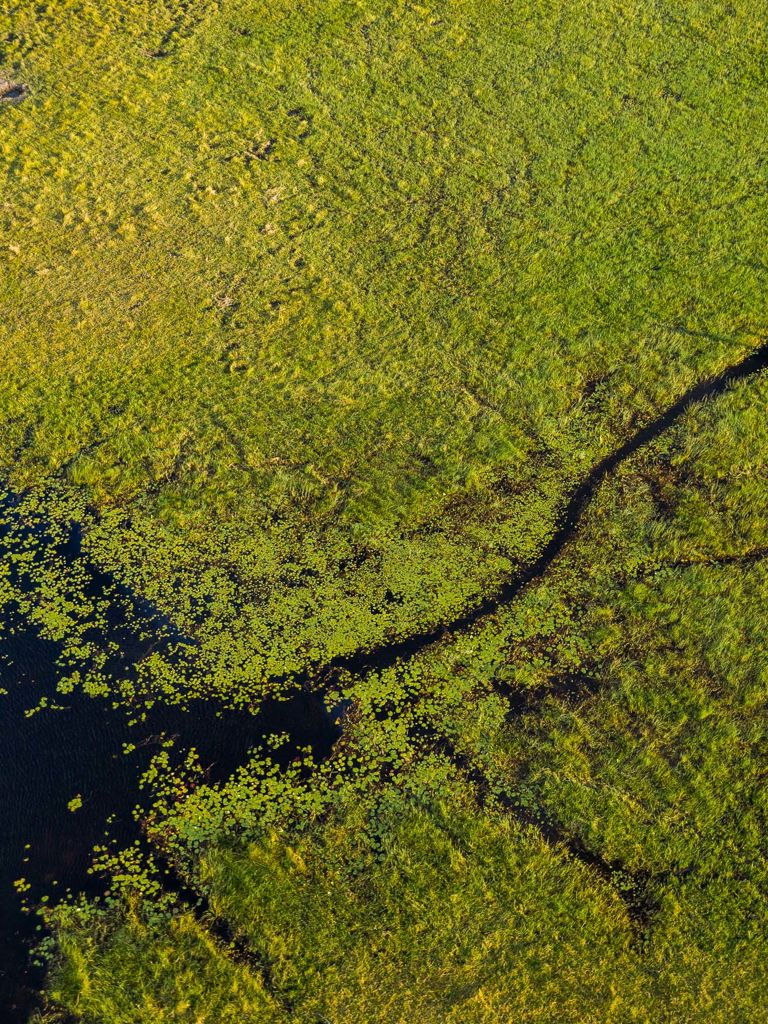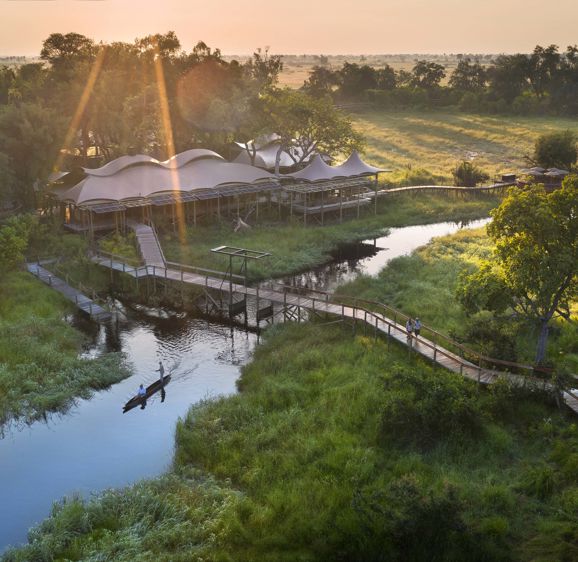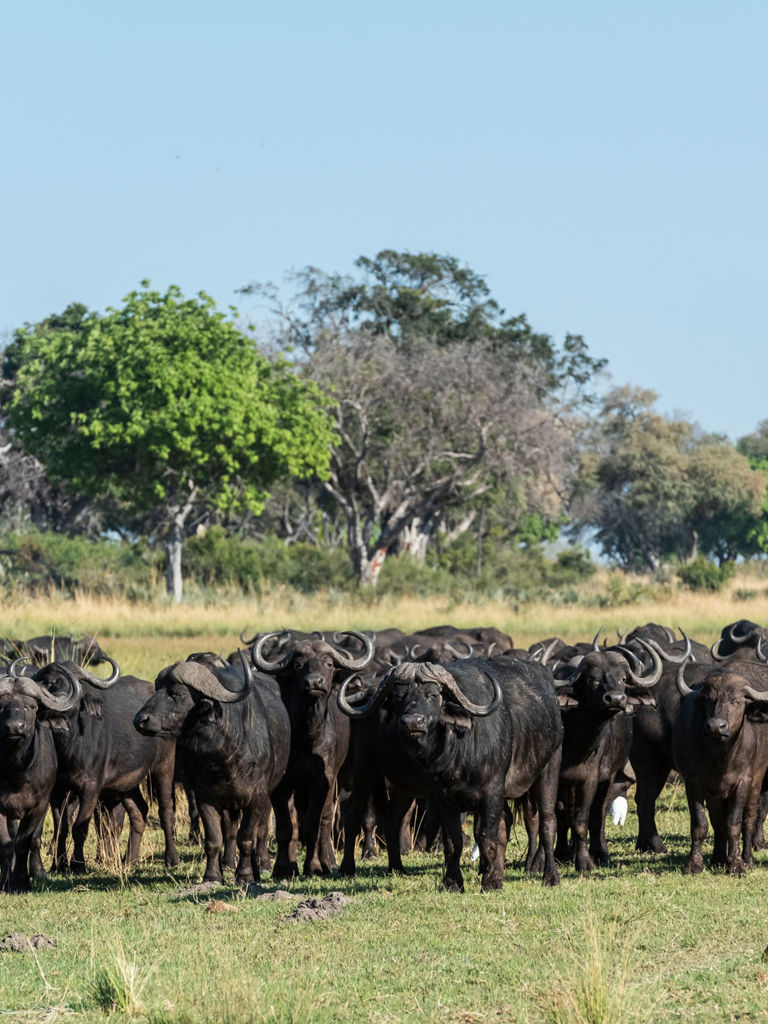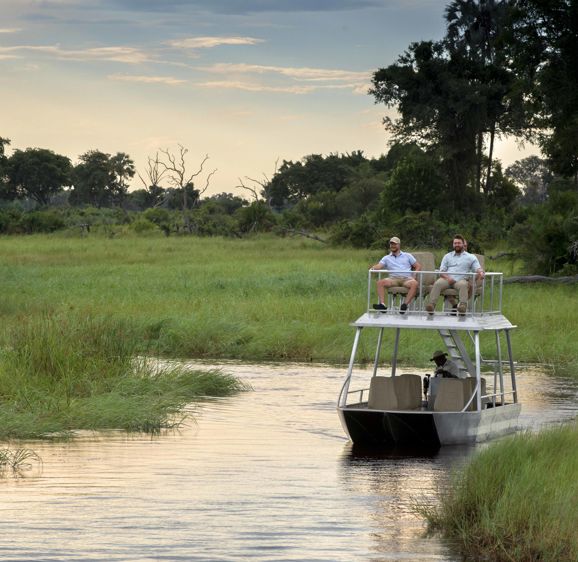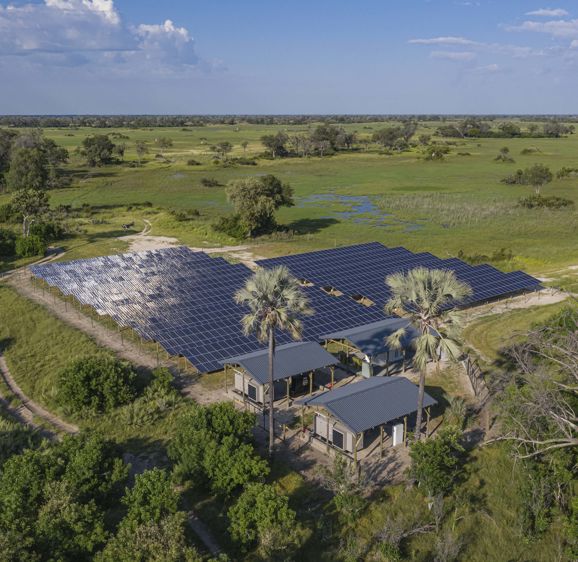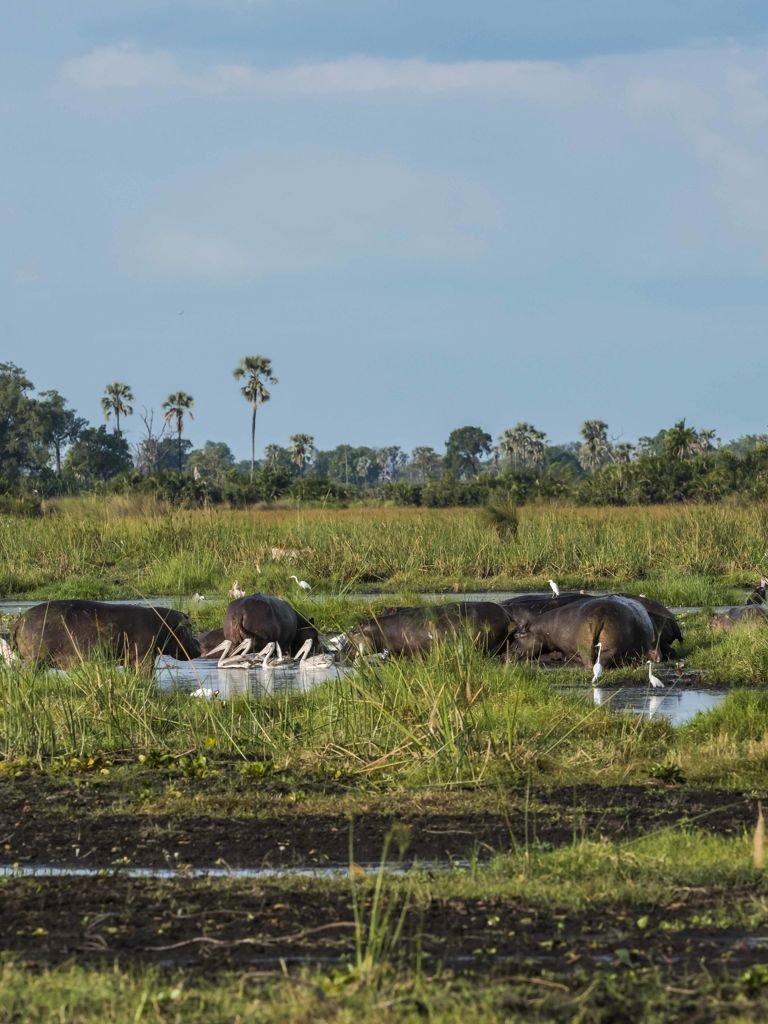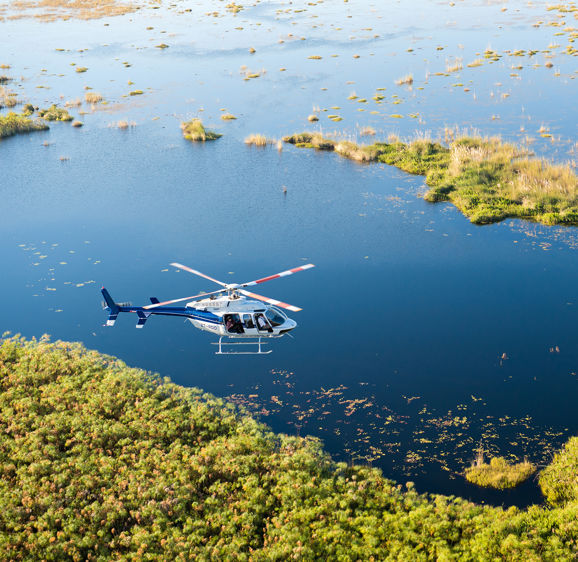
Discover lIfe on the Delta
A geological phenomenon
The glittering waters of the Okavango are at their highest during the dry season. Most of the water that floods the Okavango Delta each year comes from the Angolan Highlands, travelling over 1,700km to reach the Okavango’s unique geological space. The Delta sits in a tectonic trough, formed 50,000 years ago when an earthquake in Southern Africa shifted the earth’s plates. Where the Angolan floodwater used to flow through Botswana, it now finds it home in this remarkable plain.

